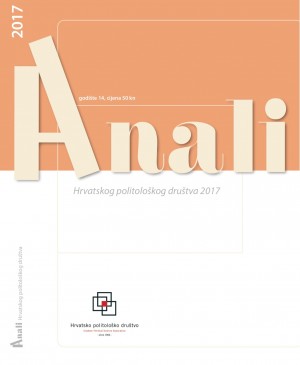Utjecaj Europskog semestra na politike zapošljavanja u Hrvatskoj, 2013-2016.
The Influence of the European Semester on Employment Policy in Croatia, 2013 – 2016
Author(s): Mario MuntaSubject(s): National Economy, Civil Society, Labor relations, Economic development, Human Resources in Economy, Socio-Economic Research
Published by: Hrvatsko politološko društvo
Keywords: European Semester; Europeanization; employment policy; Croatia; Youth Guarantee; retirement;
Summary/Abstract: This paper analyzes the effects of the European Semester, EU's framework for socio-economic policy coordination, on change of Croatian employment policy. The case of Croatia is used to illustrate in what manner, under which conditions and to what extent the European Semester architecture actually influences Croatian employment policies. The focus is on two policy items: the Youth Guarantee and the retirement age provision. The findings on the Youth Guarantee lend crucial support to the expectation that intensified monitoring and reporting obligations will contribute to domestic policy change. Drawing on interview data, the author identifies administrative pressure and low familiarity with the European Commission's modus operandi within the European Semester as two crucial elements of influence. On the other hand, Croatia repeatedly neglected EU's recommendation to step up the harmonization of female and male retirement age. Reasons for low European Semester impact on this issue can be found in a number of constraining conditions that were at play: coalition politics, the stickiness of the policy issue, opposite policy beliefs and a highly uncertain political situation. These factors acted as deterrents from policy change despite potential EU sanctions down the pike.
Journal: Anali hrvatskog politološkog društva
- Issue Year: 2017
- Issue No: 14
- Page Range: 187-211
- Page Count: 25
- Language: English

